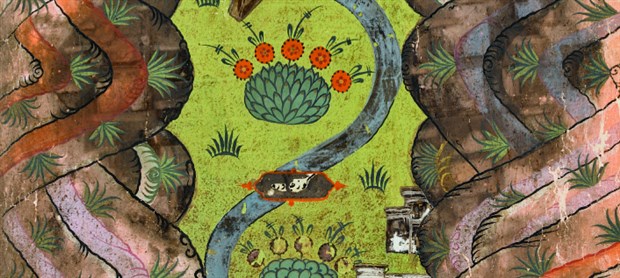UNESCO has proclaimed 2014 as the “Year of Matrakçı Nasuh,” it being the 450th anniversary of his death. The sixteenth-century polymath will be celebrated in an occasion sponsored jointly by the Turkish National Commission for UNESCO and the Center for Turkish Literature of Bilkent University.
The sixteenth-century Ottoman world produced this multifaceted scientist and artist, who is comparable to such eastern figures as Ibn Khaldun, Ibn al-Haytham, Avicenna, Omar Khayyam and Rabindranath Tagore, and such western figures as Leonardo da Vinci, Michelangelo, Galileo Galilei and Francis Bacon. Matrakçı Nasuh wrote works on subjects ranging from mathematics to history, from art to sport. His achievements will be evaluated in a symposium that will take place on Thursday, November 27 (9:30 a.m.-6:30 p.m.), in the C-Block auditorium of the Faculty of Humanities and Letters building.
The symposium has been arranged by Assoc. Prof. Nuran Tezcan of the Department of Turkish Literature. Opening speakers will be Ambassador Gürcan Türkoğlu, deputy chairman of the Turkish National Commission, and Prof. Halûk Dursun, undersecretary of the Ministry of Culture and Tourism of the Turkish Republic.
Symposium sessions will explore the dazzling breadth of Matrakçı Nasuh’s accomplishments. The renowned art historian Nurhan Atasoy, professor emerita of İstanbul University, and Dr. Zeynep Yürekli-Görkay, a researcher at Oxford University, will speak about his city miniatures. Gottfried Hagen, professor of history at the University of Michigan, will focus on Matrakçı’s cartographic activity. Three professors of the history of science—Feza Günergun (İstanbul University), Melek Dosay-Gökdoğan (Ankara University) and Yavuz Unat (Kastamonu University)—will offer perspectives on the Ottoman world of science and Matrakçı Nasuh as a mathematician. Dr. Walter Posch, who used Matrakçı’s works in his two-volume book on Ottoman-Safavid relations, will deal with the historical writings of this universal man of science. Dr. Davut Erkan of 29 Mayıs University will speak about Matrakçı’s “Süleyman-nâme”; and İsmail Hakkı Aksoyak, professor of Turkish literature at Gazi University, will discuss his “Tuhfetü’l-Guzât,” which deals with war games.
With the works that he produced in various fields, Matrakçı Nasuh is a figure who transcended the century in which he lived. Literary scholar Prof. Kemal Özmen will discuss the reflections of his work in contemporary literature. This occasion commemorating Matrakçı Nasuh, who was also famous in his own day as the inventor of a game played with wooden staves (matrak), will close with a demonstration by Efkan Çalış (vice president of the World Matrak Association) and his team, who have revived this sport in the 21st century.

